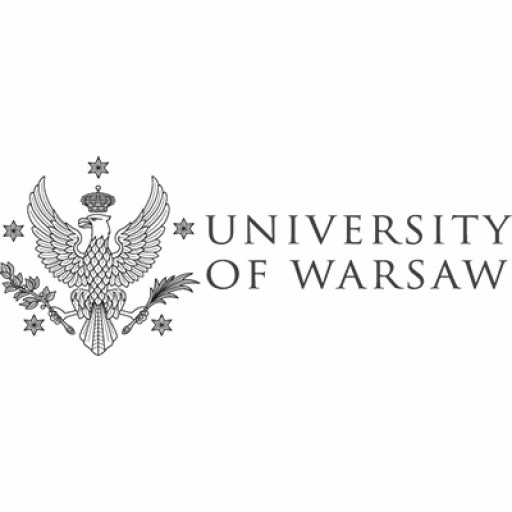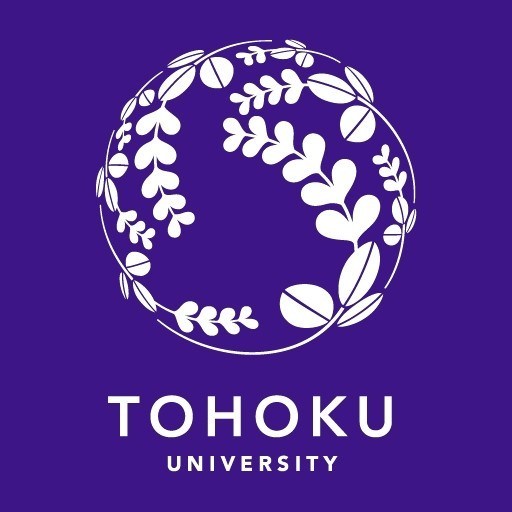Photos of university / #uniwersytetwarszawski
The Chemistry programme at the University of Warsaw offers students a comprehensive education in the fundamental and applied aspects of chemistry, preparing them for diverse careers in science, research, industry, and education. This multidisciplinary programme is designed to develop a deep understanding of chemical principles, experimental techniques, and modern analytical methods. Throughout the course of study, students gain knowledge in organic, inorganic, physical, and analytical chemistry, enabling them to solve complex scientific problems and contribute to innovations in various sectors such as pharmaceuticals, environmentally friendly technologies, and materials science.
The curriculum combines theoretical lessons with extensive laboratory work, fostering practical skills and critical thinking. Students have the opportunity to participate in supervised research projects, internships, and collaborations with industry partners, enhancing their practical experience and employability. The programme emphasizes the importance of scientific inquiry, ethical standards, and innovative approaches in chemistry. It provides a solid foundation for pursuing postgraduate studies or entering the workforce in chemical laboratories, research institutes, or corporate environments.
Faculty members include experienced scientists and researchers who are actively involved in cutting-edge chemical research, ensuring that students receive up-to-date knowledge and mentorship. The department invests in modern laboratory facilities and resources, creating an optimal environment for learning and discovery. Graduates of this programme are well-equipped to address contemporary scientific challenges and contribute to sustainable development through advancements in chemical science. The Chemistry programme at the University of Warsaw stands out for its rigorous academic standards, innovative curriculum, and strong connections to the global scientific community, making it an excellent choice for aspiring chemists seeking a world-class education.
The Bachelor's Degree in Chemistry at the University of Warsaw offers a comprehensive curriculum designed to provide students with a solid foundation in chemical sciences, along with practical skills necessary for a successful career in research, industry, or education. The program spans three years and combines theoretical coursework with extensive laboratory work, enabling students to develop a deep understanding of chemical principles and their applications. Throughout the programme, students explore various branches of chemistry, including organic, inorganic, physical, and analytical chemistry, as well as interdisciplinary fields such as biochemistry and materials science.
The curriculum begins with fundamental courses in general chemistry, mathematics, and physics, establishing a strong basis for more advanced topics. As students progress, they engage in specialized modules covering organic synthesis, instrumental analysis, chemical thermodynamics, quantum chemistry, and spectroscopy. Laboratory sessions are integrated into each semester, emphasizing experimental techniques, data analysis, and safety procedures, thus ensuring that students gain hands-on experience in modern chemical laboratories.
Additionally, the programme fosters critical thinking and problem-solving skills through project work, case studies, and research assignments. Students also have opportunities to participate in internships and cooperative education projects with industry partners, providing practical insights into the applications of chemistry in real-world contexts. The university encourages a scientific mindset and innovation, preparing graduates to contribute to advancements in pharmaceuticals, environmental protection, materials development, and other areas vital to societal progress.
The teaching staff comprises experienced professors and researchers who are actively involved in scientific research, ensuring that the education remains current and aligned with global developments in chemical sciences. Students benefit from modern teaching facilities, state-of-the-art laboratories, and access to extensive academic resources. The programme also emphasizes the development of transferable skills such as teamwork, communication, and project management, which are highly valued in the job market. Upon graduation, students receive a thorough understanding of chemical sciences, equipping them with the knowledge and competences necessary for further postgraduate studies or employment in various sectors related to chemistry.
Program requirements for the Chemistry program at the University of Warsaw typically include a strong foundation in mathematics and physics, as well as a solid background in chemistry. Applicants are usually required to have completed secondary education with an emphasis on science and mathematics subjects, demonstrating their readiness for rigorous scientific coursework. Proficiency in English is necessary, often confirmed through standardized tests such as TOEFL or IELTS, to ensure students can access the full curriculum delivered in English.
The admissions process may also consider the applicant’s overall academic performance, especially in science and mathematics subjects, with a focus on their ability to undertake challenging scientific studies. Once admitted, students are expected to complete a curriculum comprising core courses in inorganic, organic, physical, and analytical chemistry, complemented by practical laboratory work designed to develop hands-on skills and experimental techniques. In addition, students undertake modules in biochemistry, environmental chemistry, and materials science to broaden their expertise.
Students are required to participate in seminars and workshops to enhance their research awareness and communication skills. The program emphasizes the importance of internships and collaborative projects with industry partners or research institutions, providing practical experience in real-world settings. To earn the degree, students must pass all theory and laboratory examinations, complete a research project or thesis, and demonstrate their competency in scientific writing and presentation.
Specializations or tracks within the program may include organic chemistry, inorganic chemistry, physical chemistry, or analytical chemistry, allowing students to tailor their studies according to their interests and career goals. The degree program is designed to prepare graduates for employment in research and development, quality control, environmental monitoring, or further academic study through postgraduate programs. Overall, the program seeks to instill a comprehensive understanding of chemical principles, analytical techniques, and research methodologies foundational for advancing in various scientific and industrial fields.
The financing of the Chemistry degree program at the University of Warsaw is primarily covered through a combination of public funding, student contributions, and potential scholarship opportunities. As a public university in Poland, the primary source of financing for this program comes from state budget allocations, which ensure that the core infrastructure, faculty salaries, laboratory facilities, and academic resources are maintained to high standards. For students enrolled in the standard full-time program, tuition fees are typically subsidized by the government, making the education accessible to a broad demographic.
Additionally, the university offers various scholarships and financial aid options, including merit-based scholarships awarded to top-performing students, needs-based support for students from less privileged backgrounds, and special scholarships for international students. These aid packages help reduce the financial burden on students and support their academic progress. International students may have different financing arrangements, with some paying tuition fees set according to their nationality or place of residence, while others may benefit from exchange programs or bilateral agreements that provide financial support or tuition waivers.
Research grants and project funding from national and European Union sources also play a significant role in financing the education and research activities within the Chemistry program. These grants often fund specialized equipment, research projects, and conference participation, enriching the educational experience and providing students with opportunities for practical training and research employment.
Practical training components included in the program may involve paid internships or cooperative education arrangements, which can provide students with additional income during their studies. Furthermore, students are encouraged to apply for external scholarships, fundraising activities, or part-time jobs, which can help offset expenses related to living, transportation, and academic supplies.
Overall, the financial aspects of the Chemistry program at the University of Warsaw are structured to ensure broad accessibility and support for students through a mix of public funding, institutional scholarships, research grants, and personal financial planning. The university remains committed to providing high-quality education while striving to minimize financial barriers for its students.
The Chemistry program at the University of Warsaw is designed to provide students with a comprehensive education in the fundamental and applied aspects of chemistry. The program aims to equip students with a solid knowledge of inorganic, organic, physical, analytical, and biochemistry, enabling them to understand the chemical processes that occur in nature and in technological applications. Throughout the course of study, students have the opportunity to participate in laboratory work, which develops practical skills and experimental techniques essential for careers in research, industry, pharmaceuticals, and environmental protection. The curriculum incorporates modern topics such as green chemistry, nanotechnology, and materials science, reflecting current trends and innovations in the field. Students are also encouraged to engage in scientific research projects, often in collaboration with academic staff or industry partners, fostering critical thinking and problem-solving abilities. The program may include opportunities for students to participate in internships to gain real-world experience and to improve their employability after graduation. Graduates of the Chemistry program are prepared for employment in scientific research institutions, chemical industries, environmental agencies, and academia, or to continue their studies at the postgraduate level. The university offers a stimulating academic environment with well-equipped laboratories, research centers, and access to scientific literature and resources. The faculty members are experienced researchers and educators dedicated to supporting student development and facilitating innovative teaching methods. Overall, the Chemistry program at the University of Warsaw combines rigorous scientific education with practical training, preparing graduates to meet the challenges of a rapidly evolving scientific landscape and to contribute meaningfully to society through scientific advancements and responsible application of chemical knowledge.










